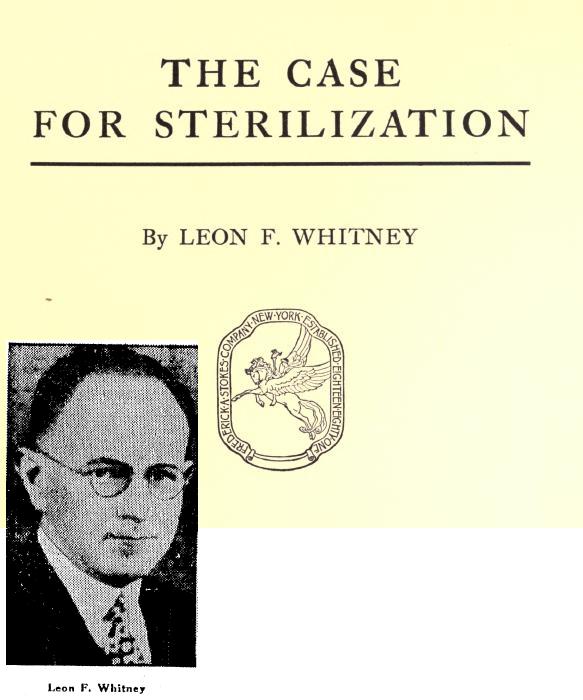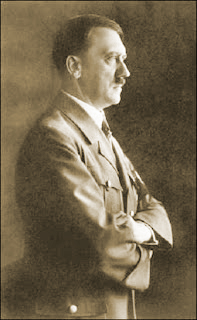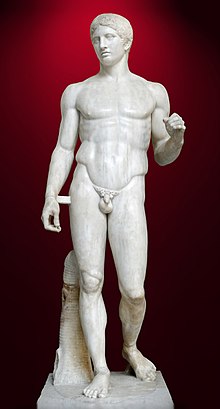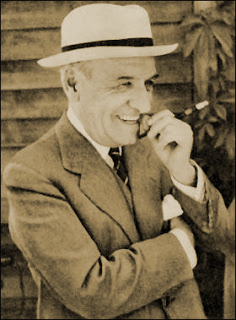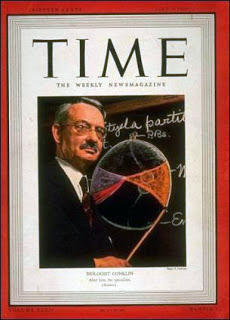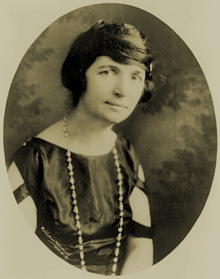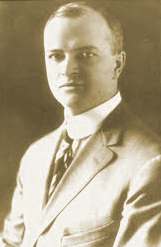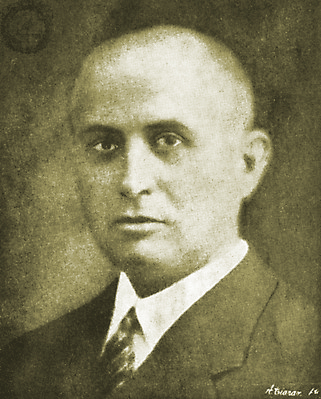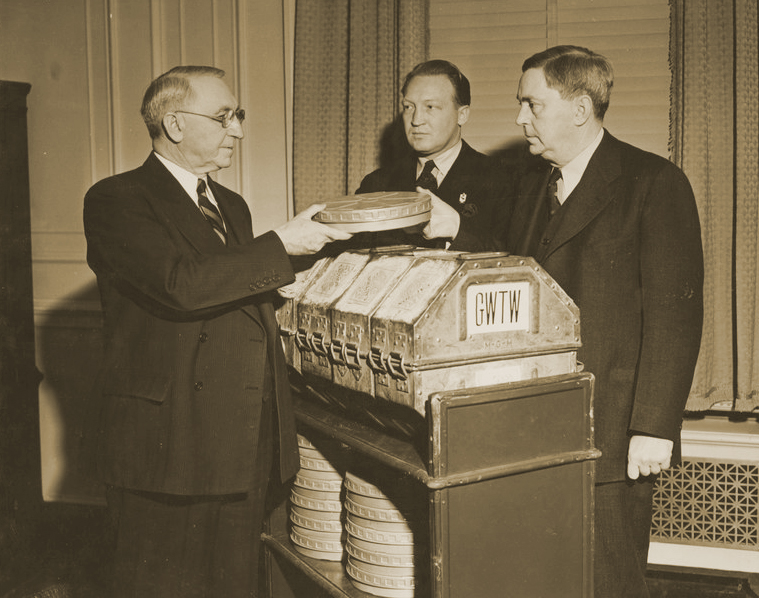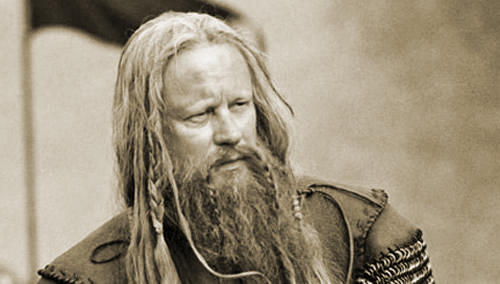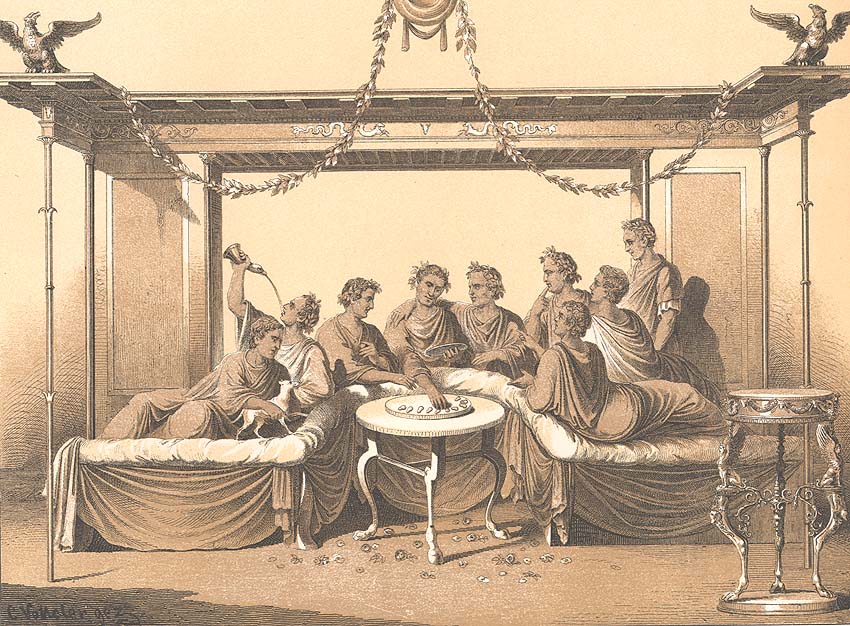by Evropa Soberana
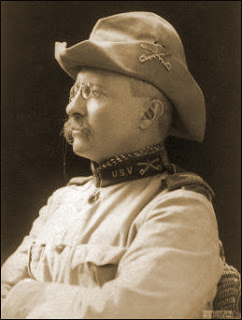 Theodore Roosevelt (1858-1919), twentieth President of the United States, descendant of the Dutch aristocracy, cowboy, man of extraordinary vitality, father of six children, banned immigration from China, Japan and the Philippines for considering it of inferior quality to that of northern Europe and received the Nobel Peace Prize in 1906 for his mediation in the Russo-Japanese War.
Theodore Roosevelt (1858-1919), twentieth President of the United States, descendant of the Dutch aristocracy, cowboy, man of extraordinary vitality, father of six children, banned immigration from China, Japan and the Philippines for considering it of inferior quality to that of northern Europe and received the Nobel Peace Prize in 1906 for his mediation in the Russo-Japanese War.
During the Spanish-American War of 1898, in which Spain lost Cuba and the Philippines, Roosevelt came to lament that the anti-militarist and peace-loving individuals left offspring, while the splendid young soldiers, good genetic specimens often fell in combat without having left a child. During that war, he joined a famous cavalry unit, the Rough Riders.
Time after being President, he was the victim of an attack in which he was shot. The attack broke a rib and left a bullet lodged in his chest but he insisted on finishing his speech one hour before receiving medical attention.
It is really extraordinary that our people refuse to apply to human beings such elementary knowledge as every successful farmer is obliged to apply to his own stock breeding. Any group of farmers who permitted their best stock not to breed, and let all the increase come from the worst stock, would be treated as fit inmates for an asylum.
Yet we fail to understand that such conduct is rational compared to the conduct of a nation which permits unlimited breeding from the worst stock, physically and morally, while it encourages or connives at the cold selfishness or the twisted sentimentality as a result of which the men and women who ought to marry, and if married have large families, remain celibates or have no children or only one or two.
Some day we will realize that the prime duty, the inescapable duty of the good citizen of the right type is to leave his or her blood behind him in the world! and that we have no business to permit the perpetuation of citizens of the wrong type. (January 3, 1913 letter by Theodore Roosevelt to Charles Davenport.)

William Duncan McKim (1855-1935), an American doctor, surgeon and organist, he was probably one of the eugenicists who went further, proposing in Heredity and Human Progress that inheritance is the cause of human ruin, and that not only the unfit should be sterilised, but that society should also kill the genetic defectives who were institutionalised as the mentally retarded, the epileptics, incurable alcoholics, incorrigible criminals, and in general ‘the very weak and very vicious’. His proposition was known as ‘eugenic murder’, something like euthanasia, a ‘soft and painless death’ for defectives, in his own words.
John H. Kellogg (1852-1943), American physician and brother of the Arab tycoon and horse breeder William K. Kellogg, who also supported eugenics.
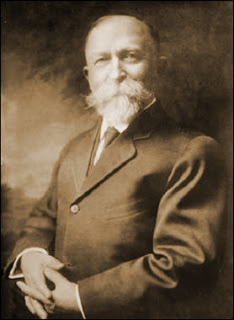 We have wonderful new races of horses, cows, and pigs. Why should we not have a new and improved race of men?… The attitude of the average man toward the question of human eugenics is well illustrated by the story told of a New York merchant, who had four full-blooded dogs and two young sons. A friend, observing that he employed a tutor for his boys while he cared for his dogs himself, said to him one day:
We have wonderful new races of horses, cows, and pigs. Why should we not have a new and improved race of men?… The attitude of the average man toward the question of human eugenics is well illustrated by the story told of a New York merchant, who had four full-blooded dogs and two young sons. A friend, observing that he employed a tutor for his boys while he cared for his dogs himself, said to him one day:
“Mr. Smith, why do you give your personal attention to your dogs and turn your boys over to a tutor?”
“Oh,” said the merchant, “my dogs have a pedigree.” (Proceedings of the First National Conference on Race Betterment, January 1914. Battle Creek, Michigan.)
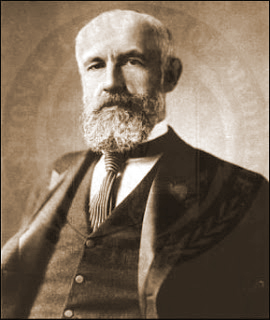
Stanley Hall (1846-1924), American psychologist and pedagogue, specialising in childhood, adolescence and youth. Influenced by Darwinian theories that came from England, Hall delved into the biological and psychological differences between men and women, as well as the issue of racial eugenics. He was the first president of the American Psychological Association, as well as Clark University. He denounced the efforts of modern societies to ‘save dying, defective and criminal patients, since helping them survive interferes with the natural selection process’.
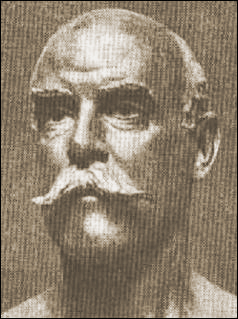 Madison Grant (1865-1937), American lawyer, eugenicist and conservationist. Furious anti-communist. In addition to his well-known Nordicism, Grant played an important role in the American policies of the early 20th century, which sought to prevent racial miscegenation and immigration into the US of genetically defective people, giving priority to immigration from England, Scotland, the Scandinavian countries, the Netherlands and Northern Germany.
Madison Grant (1865-1937), American lawyer, eugenicist and conservationist. Furious anti-communist. In addition to his well-known Nordicism, Grant played an important role in the American policies of the early 20th century, which sought to prevent racial miscegenation and immigration into the US of genetically defective people, giving priority to immigration from England, Scotland, the Scandinavian countries, the Netherlands and Northern Germany.
Grant very seriously warned about the danger posed by miscegenation of the white race, as this would inevitably entail a ‘third worldization’ of the US (as it is beginning to be seen today in certain neighbourhoods in the South, more exposed to the pernicious and destructive Mexican immigration).
In 1906, as secretary of the New York Zoological Society, he helped to exhibit Ota Benga—a pygmy of the Congo—with the monkeys at the Bronx Zoo. Grant, who was trying to make the United States a Nordic society, wrote The Passing of the Great Race, a book that was reissued in Germany during the Third Reich and which Hitler is supposed to say, in a letter to Grant, ‘the book is my bible’.
Grant fought ideologically against the Jewish anthropologist Franz Boas (who refused to shake hands), a supporter of the theory of cultural anthropology, while Grant advanced hereditary anthropology (traits are inherited and respond to genetics, not education or the environment). In response to the pernicious Boasian school, Grant founded in 1918, together with Davenport, the Galton Society.
A rigid system of selection through the elimination of those who are weak or unfit—in other words, Social failures—would solve the whole question in a century, as well as enable us to get rid of the undesirables who crowd our jails, hospitals and insane asylums. The individual himself can be nourished, educated and protected by the community during his lifetime, but the state through sterilization must see to it that his line stops with him or else future generations will be cursed with an ever increasing load of victims of misguided sentimentalism. This is a practical, merciful and inevitable solution of the whole problem and can be applied to an ever widening circle of social discards, beginning always with the criminal, the diseased and the insane and extending gradually to types which may be called weaklings rather than defectives and perhaps ultimately to worthless race types. (Emphasis added, The Passing of the Great Race, 1916.)
Nikola Tesla (1856-1943), engineer, inventor and Serbian-American intellectual.
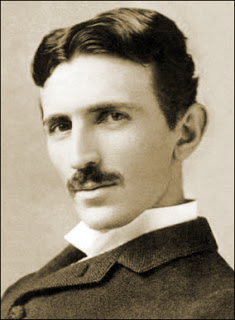 The year 2100 will see eugenics universally established. In past ages, the law governing the survival of the fittest roughly weeded out the less desirable strains. Then man’s new sense of pity began to interfere with the ruthless workings of nature. As a result, we continue to keep alive and to breed the unfit. The only method compatible with our notions of civilization and the race is to prevent the breeding of the unfit by sterilization and the deliberate guidance of the mating instinct. Several European countries and a number of states of the American Union sterilize the criminal and the insane. This is not sufficient. The trend of opinion among eugenicists is that we must make marriage more difficult. Certainly no one who is not a desirable parent should be permitted to produce progeny. A century from now it will no more occur to a normal person to mate with a person eugenically unfit than to marry a habitual criminal. (February 9, 1935 issue of Liberty magazine.)
The year 2100 will see eugenics universally established. In past ages, the law governing the survival of the fittest roughly weeded out the less desirable strains. Then man’s new sense of pity began to interfere with the ruthless workings of nature. As a result, we continue to keep alive and to breed the unfit. The only method compatible with our notions of civilization and the race is to prevent the breeding of the unfit by sterilization and the deliberate guidance of the mating instinct. Several European countries and a number of states of the American Union sterilize the criminal and the insane. This is not sufficient. The trend of opinion among eugenicists is that we must make marriage more difficult. Certainly no one who is not a desirable parent should be permitted to produce progeny. A century from now it will no more occur to a normal person to mate with a person eugenically unfit than to marry a habitual criminal. (February 9, 1935 issue of Liberty magazine.)
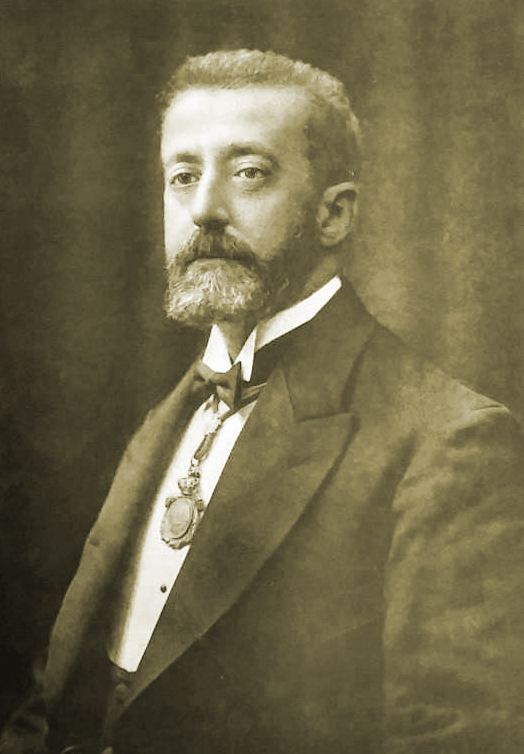 Arturo Redondo y Carranceja (1855-1923), Spanish professor of medicine in universities such as Granada, Zaragoza, Valladolid and Madrid. In 1918 he delivered to his Faculty of Medicine a speech entitled ‘Degeneration and Regeneration of our Race’. He estimated that the degenerates formed approximately sixty percent of the population, and that it was necessary to stop the multiplication of lower types in order to ‘reconstitute the race without having to go through the deadly procedures that natural selection is worth’.
Arturo Redondo y Carranceja (1855-1923), Spanish professor of medicine in universities such as Granada, Zaragoza, Valladolid and Madrid. In 1918 he delivered to his Faculty of Medicine a speech entitled ‘Degeneration and Regeneration of our Race’. He estimated that the degenerates formed approximately sixty percent of the population, and that it was necessary to stop the multiplication of lower types in order to ‘reconstitute the race without having to go through the deadly procedures that natural selection is worth’.
What I have said about inheritance, that I will not tire of repeating, is the true cause of the horrific loss of children; and I shall abstain from entering into more details or considerations about infant mortality. Look for their origins as you like, in the background two facts are hidden: the conditions of the parents and of the moment of the conception, and the one in which the gestation is developed until its term. Infant mortality is nothing more than the inexorable fact of natural selection, which denies life to the degenerate, because only the viable lives. A bad seed, bad harvest, whatever the exquisite care of the crop. (Redondo y Carranceja, page 70.)
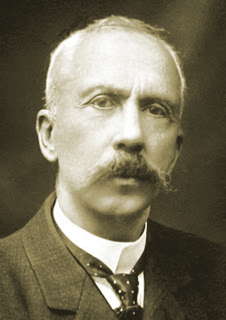
Charles Richet (1850-1935), French physiologist, Nobel Prize for Medicine of 1913. In his magnum opus, La Sélection Humaine (1919), he dedicated a chapter no less than to the elimination of the abnormal:
What makes man is intelligence. A mass of human flesh without human intelligence is nothing. There is bad living matter that is not worthy of any respect or compassion. To suppress them resolutely would be to render them a service, for they can never do anything other than cope with a miserable existence.
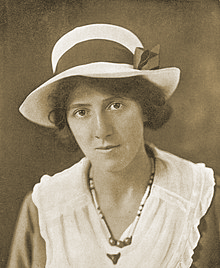
Marie Stopes (1880-1958), Scottish paleobotanist, known along with Margaret Sanger for her role in some areas of ‘female liberation’ and birth control in order to treat what she called ‘weeds invading the human garden’. As in so many other figures of this period, I see her ideological flaw in classism and non-genetic consideration. Many of these men and women were often unable to assume that a worker or a peasant could have better genetics than a capitalist. After her death, much of her fortune went to the Eugenics Society.
It is, however, neither necessary to castrate nor is it suggested by those who, like myself, would like to see the sterilization of those totally unfit for parenthood made an immediate possibility, indeed made compulsory. As Dr. Havelock Ellis stated in an article in the Eugenics Review, Vol. I, No. 3, October 1909, pp. 203-206, sterilization under proper conditions is a very different and much simpler matter and one which has no deleterious and far reaching effects on the whole system. The operation is trivial, scarcely painful, and does not debar the subject from experiencing all his normal reaction in ordinary union; it only prevents the procreation of children. (Radiant Motherhood: A Book for Those Who Are Creating the Future, 1920.)
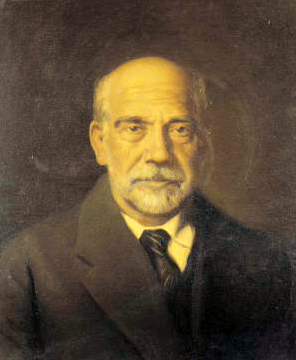 Pío Baroja (1872-1956), Spanish writer of the so-called Generation of 98. Baroja had read the original sources from which the whole Nordicist current starts: Gobineau, Vacher de Lapouge and Houston Stewart Chamberlain. He endorsed the thesis according to which the greatness of Spain, which relied on the Aryan and Basque elements of the country had been losing, over the centuries, presence before the progressive contamination of Semitic and Middle Eastern (‘Mediterranean’) elements. Baroja openly advocated the resurgence of the former and repressing the latter, as a preliminary step to the rebirth of his country.
Pío Baroja (1872-1956), Spanish writer of the so-called Generation of 98. Baroja had read the original sources from which the whole Nordicist current starts: Gobineau, Vacher de Lapouge and Houston Stewart Chamberlain. He endorsed the thesis according to which the greatness of Spain, which relied on the Aryan and Basque elements of the country had been losing, over the centuries, presence before the progressive contamination of Semitic and Middle Eastern (‘Mediterranean’) elements. Baroja openly advocated the resurgence of the former and repressing the latter, as a preliminary step to the rebirth of his country.
______ 卐 ______
Editor’s Note: Instead of the page and a half quote from the novel El Árbol de la Ciencia (The Tree of Knowledge) that Evropa Soberana chose, a novel by Pío Baroja that may only be of interest to Spanish speakers, I translated a 2015 post of my blog in Spanish titled ‘Answer’ to my question: Is there a Spanish or Portuguese writer of past centuries who has said that the backwardness of their nations, compared to the most Aryan nations, is due to their miscegenation with non-Aryans (the mixture initiated by the Visigoths since the 7th century)? Kurwenal, a commenter, provided relevant information on what I was looking for, which is what appears above in the section of Pío Baroja.
The collected quotations so far demonstrate that old eugenics was a mixture of pseudoscience (e.g., the identification of poverty among whites with bad genes) with science (e.g., what Grant says above in Italics or why Roosevelt prevented the migration of non-whites into the US).
Although I will finish reading Soberana’s long essay, in the next instalments of this series I’ll only add the scientific quotes. I shall omit pseudoscientific quotes even if they come from Soberana’s section on National Socialism.
 Walther Darré (1895-1953), Minister of Food, Agriculture and Supplies of the Reich, Chief of German Peasants, Director of the SS Office of Race and Resettlement, notorious Nordicist, co-founder of Ahnenerbe and promoter of the racial idea and geopolitics of Blut und Boden (blood and soil), warned about the fallacy of the so-called race of the spirit:
Walther Darré (1895-1953), Minister of Food, Agriculture and Supplies of the Reich, Chief of German Peasants, Director of the SS Office of Race and Resettlement, notorious Nordicist, co-founder of Ahnenerbe and promoter of the racial idea and geopolitics of Blut und Boden (blood and soil), warned about the fallacy of the so-called race of the spirit: [1] Note of the Editor: Few know the connection of Syria and Africa in the formation of Roman Catholic theology. See the chapters on ‘Persia, Armenia and Christianity’ and St. Augustine in Karlheinz Deschner’s Christianity’s Criminal History. Even Catholic historian of Christianity Paul Johnson recognises that Augustine’s theology ‘was Punic’.
[1] Note of the Editor: Few know the connection of Syria and Africa in the formation of Roman Catholic theology. See the chapters on ‘Persia, Armenia and Christianity’ and St. Augustine in Karlheinz Deschner’s Christianity’s Criminal History. Even Catholic historian of Christianity Paul Johnson recognises that Augustine’s theology ‘was Punic’.


